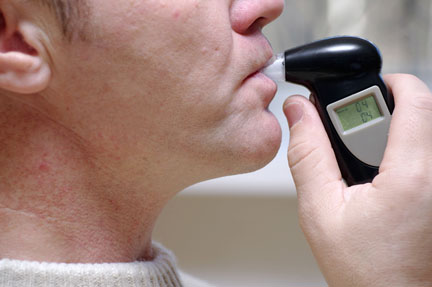When Phillip Coffey was charged with impaired driving in August 2010, it left a bad taste in his mouth.

The Mono, Ont., man has acid reflux, a condition that sends a bitter fluid up his throat once in a while. He had such an episode just before his breath alcohol tests were taken on the evening a police officer pulled him over. In a recent decision, Ontario Court Justice Douglas Maund
dropped charges against Coffey, ruling his acid reflux resulted in two false breath test results.
Even though Coffey only had three glasses of wine that evening, the regurgitated alcohol meant the breathalyzer picked up more alcohol than would normally be in his mouth, a toxicologist testified.
The expert’s opinion was that “the potential presence of mouth alcohol could have a dramatic effect and could produce abnormally high and false readings,” the judge said.
Another expert said this scenario would be very unlikely, but couldn’t rule it out.
In his verdict, Maund said scientific certainty is not needed to satisfy the requirement of reasonable doubt.
“What is necessary is to establish a realistic scientific possibility,” he said. “A reasonable doubt must be raised on the basis of credible evidence tending to show that the instrument was malfunctioning. I find that the evidence before me has established such a reasonable doubt as required by section 258(1)(c)(iv).”
Coffey had also told the court that he hadn’t taken his medication on the day of the incident.
“I find that I accept Mr. Coffey’s evidence that he was actually experiencing acid reflux symptoms during the breath tests. I found his evidence credible and he was unshaken in cross-examination,” the judge said.
“Having come to this conclusion, I find that it has been established that there was a real possibility that some alcohol may have been in Mr. Coffey’s oral cavity when the tests were taken. There was therefore a real potential for false readings from the instrument.”

 The Mono, Ont., man has acid reflux, a condition that sends a bitter fluid up his throat once in a while. He had such an episode just before his breath alcohol tests were taken on the evening a police officer pulled him over. In a recent decision, Ontario Court Justice Douglas Maund dropped charges against Coffey, ruling his acid reflux resulted in two false breath test results.
The Mono, Ont., man has acid reflux, a condition that sends a bitter fluid up his throat once in a while. He had such an episode just before his breath alcohol tests were taken on the evening a police officer pulled him over. In a recent decision, Ontario Court Justice Douglas Maund dropped charges against Coffey, ruling his acid reflux resulted in two false breath test results.